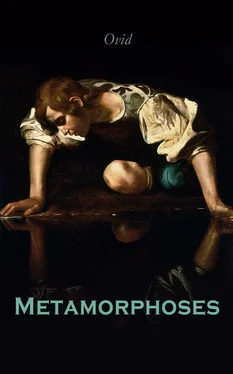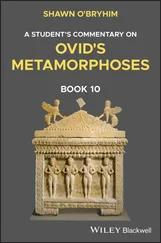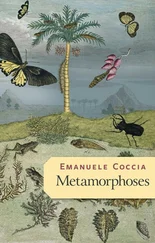8 The chariot give bounds. ]—Ver. 165-6. Clarke thus renders these lines.—‘Thus does the chariot give jumps into the air without its usual weight, and is kicked up on high, and is like one empty.’
9 They say, too. ]—Ver. 176-7. The following is Clarke’s translation of these two lines,—‘They say, too, that you, Boötes, scowered off in a mighty bustle, although you were but slow, and thy cart hindered thee.’
10 Athos. ]—Ver. 217. Athos (now Monte Santo) was a mountain of Macedonia, so lofty that its shadow was said to extend even to the Isle of Lemnos, which was eighty-seven miles distant.
11 Taurus. ]—Ver. 217. This was an immense mountain range which ran through the middle of Cilicia, in Asia Minor.
12 Tmolus. ]—Ver. 217. Tmolus (now Bozdaz) was a mountain of Lydia, famed for its wines and saffron. Pactolus, a stream with sands reputed to be golden, took its rise there.
13 Œta. ]—Ver. 217. This was a mountain chain, which divided Thessaly from Doris and Phocis; famed for the death of Hercules on one of its ridges.
14 Ida. ]—Ver. 218. There were two mountains of the name of Ide, or Ida; one in Crete, the other near Troy. The latter is here referred to, as being famed for its springs.
15 Helicon. ]—Ver. 219. This was a mountain of Bœotia, sacred to the Virgin Muses.
16 Hæmus. —Ver. 219. This, which is now called the Balkan range, was a lofty chain of mountains running through Thrace. Orpheus, the son of Œagrus and Calliope, was there torn in pieces by the Mænades, or Bacchanalian women, whence the mountain obtained the epithet of ‘Œagrian.’
17 Ætna. ]—Ver. 220. This is the volcanic mountain of Sicily; the flames caused by the fall of Phaëton, added to its own, caused them to be redoubled.
18 Eryx. ]—Ver. 221. This was a mountain of Sicily, now called San Juliano. On it, a magnificent temple was erected, in honor of Venus.
19 Cynthus. ]—Ver. 221. This was a mountain of Delos, on which Apollo and Diana were said to have been born.
20 Rhodope. ]—Ver. 222. It was a high mountain, capped with perpetual snows, in the northern part of Thrace.
21 Mimas. ]—Ver. 222. A mountain of Ionia, near the Ionian Sea. It was of very great height; whence Homer calls it ὑψίκρημνος.
22 Dindyma. ]—Ver. 223. This was a mountain of Phrygia, near Troy, sacred to Cybele, the mother of the Gods.
23 Mycale. ]—Ver. 223. A mountain of Caria, opposite to the Isle of Samos.
24 Cithæron. ]—Ver. 223. This was a mountain of Bœotia, famous for the orgies of Bacchus, there celebrated. In its neighborhood, Pentheus was torn to pieces by the Mænades, for slighting the worship of Bacchus.
25 Caucasus. ]—Ver. 224. This was a mountain chain in Asia, between the Euxine and Caspian Seas.
26 Alps. ]—Ver. 226. This mountain range divides France from Italy.
27 Apennines. ]—Ver. 226. This range of mountains runs down the centre of Italy.
28 Their black hue. ]—Ver. 235. The notion that the blackness of the African tribes was produced by the heat of the sun, is borrowed by the Poet from Hesiod. Hyginus, too, says, ‘the Indians, because, by the proximity of the fire, their blood was turned black by the heat thereof, became of black appearance themselves.’ Notwithstanding the learned and minute investigations of physiologists on the subject, this question is still involved in considerable obscurity.
29 Libya. ]—Ver. 237. This was a region between Mauritania and Cyrene. The Greek writers, however, often use the word to signify the whole of Africa. Servius gives a trifling derivation for the name, in saying that Libya was so called, because λείπει ὁ ὕετος, ‘it is without rain.’
30 Dirce. ]—Ver. 239. Dirce was a celebrated fountain of Bœotia, into which it was said that Dirce, the wife of Lycus, king of Thebes, was transformed.
31 Amymone. ]—Ver. 240. It was a fountain of Argos, near Lerna, into which the Nymph, Amymone, the daughter of Lycus, king of the Argives, was said to have been transformed.
32 Ephyre. ]—Ver. 240. It was the most ancient name of Corinth, in the citadel of which, or the Acrocorinthus, was the spring Pyrene, of extreme brightness and purity and sacred to the Muses.
33 Tanais. ]—Ver. 242. This river, now the Don, after a long winding course, discharges itself into the ‘Palus Mæotis,’ now the sea of ‘Azof.’
34 Caïcus. ]—Ver. 243. This is a river of Mysia, here called ‘Teuthrantian,’ from Mount Teuthras, in its vicinity.
35 Ismenus. ]—Ver. 244. Ismenus was a river of Bœotia, that flowed past Thebes into the Euripus.
36 Erymanthus. ]—Ver. 245. This was a river of Arcadia, which, rising in a mountain of that name, fell into the Alpheus.
37 Xanthus. ]—Ver. 245. This was a river of Troy; here spoken of as destined to behold flames a second time, in the conflagration of that city.
38 Lycormas. ]—Ver. 245. This was a rapid river of Ætolia, which was afterwards known by the name of Evenus.
39 Mæander. ]—Ver. 246. This was a river of Phrygia, flowing between Lydia and Caria; it was said to have 600 windings in its course.
40 Melas. ]—Ver. 247. This name was given to many rivers of Thrace, Thessaly, and Asia, on account of the darkness of the color of their waters; the name was derived from the Greek word μέλας, ‘black.’
41 Tænarian Eurotas. ]—Ver. 247. The Eurotas was a river of Laconia, which flowed under the walls of the city of Sparta, and discharged itself into the sea near the promontory of Tænarus, now called Cape Matapan. The Eurotas is now called ‘Basilipotamo,’ or ‘king of streams.’
42 Orontes. ]—Ver. 248. The Orontes was a river of Asia Minor, which flowed near Antioch.
43 Thermodon. ]—Ver. 249. This was a river of Cappadocia, near which the Amazons were said to dwell.
44 Ganges. ]—Ver. 249. This is one of the largest rivers in Asia, and discharges itself into the Persian Gulf; and not, as Gierig says, in his note on this passage, in the Red Sea.
45 Phasis. ]—Ver. 249. This was a river of Colchis, falling into the Euxine Sea.
46 Ister. ]—Ver. 249. The Danube had that name from its source to the confines of Germany; and thence, in its course through Scythia to the sea, it was called by the name of ‘Ister.’
47 Alpheus. ]—Ver. 250. It was a river of Arcadia, in Peloponnesus.
48 Tagus. ]—Ver. 251. This was a river of Spain, which was said to bring down from the mountains great quantities of golden sand. The Poet here feigns this to be melted by the heat of the sun, and in that manner to be carried along by the current of the river.
49 Mæonian. ]—Ver. 252. Mæonia was so called from the river Mæon, and was another name of Lydia. The Caÿster, famous for its swans, flowed through Lydia.
50 Strymon. ]—Ver. 257. The Hebrus and the Strymon were rivers of Thrace. Ismarus was a mountain of that country, famous for its vines.
51 Hesperian. ]—Ver. 258. Hesperia, or ‘the western country,’ was a general name of not only Spain and Gaul, but even Italy. The Rhine is a river of France and Germany, the Rhone of France. The Padus, or Po, and the Tiber, are rivers of Italy.
52 Cyclades. ]—Ver. 264. The Cyclades were a cluster of islands in the Ægean Sea, surrounding Delos as though with a circle, whence their name.
53 Her all-productive face. ]—Ver. 275. The earth was similarly called by the Greeks παμμήτωρ, ‘the mother of all things.’ So Virgil calls it ‘omniparens.’
Читать дальше












